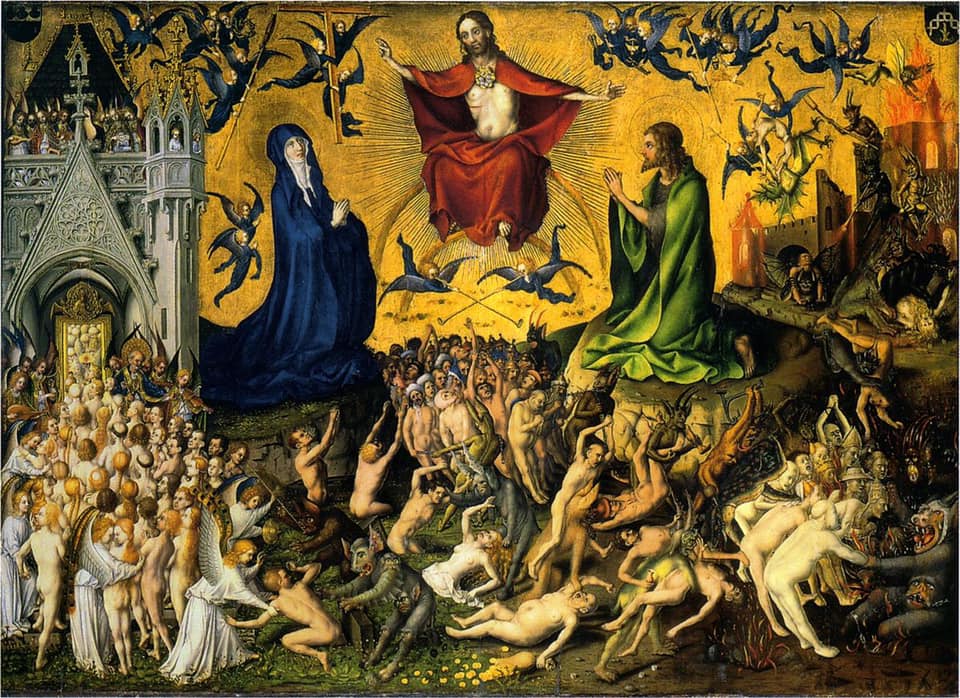 Gospel of 21 April 2020
Gospel of 21 April 2020
Tuesday of the Second Week of Easter
John 3:7-15
No-one has gone up to heaven except the Son of Man who has come down from heaven
Jesus said to Nicodemus:
‘Do not be surprised when I say:
You must be born from above.
The wind blows wherever it pleases;
you hear its sound,
but you cannot tell where it comes from or where it is going.
That is how it is with all who are born of the Spirit.’
‘How can that be possible?’ asked Nicodemus. ‘You, a teacher in Israel, and you do not know these things!’ replied Jesus.
‘I tell you most solemnly,
we speak only about what we know
and witness only to what we have seen
and yet you people reject our evidence.
If you do not believe me when I speak about things in this world,
how are you going to believe me when I speak to you about heavenly things?
No one has gone up to heaven
except the one who came down from heaven,
the Son of Man who is in heaven;
and the Son of Man must be lifted up
as Moses lifted up the serpent in the desert,
so that everyone who believes may have eternal life in him.’
Reflexion
If you regularly watch legal television shows or movies, you are probably familiar with the phrase “circumstantial evidence” or “hearsay evidence.” The phrase is almost invariably used in legal dramas to imply that the evidence is weak, or the evidence is not even true at all, as opposed to direct or eye-witness evidence. Of course, depending on which side of the legal fence the evidence favours, it could be argued that circumstantial evidence can be as powerful as direct (eye-witness) evidence when proving a case.
But this is not the case under Jewish Law. Eligible witnesses must, in almost all cases, be free men who are not deaf, mentally or morally unsuitable, or too young; in particular, women are in most cases not eligible. This is the reason why the testimony of the women who first witnessed the resurrection were called into question.
The stringent conditions imposed on a witness for his testimony to be deemed admissible is because a valid witness to an event must have seen the event with his eyes or heard it with his ears. Generally hearsay from another person is inadmissible, except in rare cases.
This helps us understand our Lord’s line of argument as He continues to assert to Nicodemus that for a person to be admitted to the Kingdom of God, he must be born from above, born of the Spirit and born again. This new heavenly life is a gift from God, not a matter of physical descent or human choice. Of course, Nicodemus like so many of us, finds all these too incredulous. “How can this be possible?”
This is where our Lord reminds Nicodemus that the most reliable source of evidence is a direct one rather than hearsay or pure speculation -“we speak only about what we know and witness only to what we have seen” - Jesus’ testimony should be more than sufficient to fulfill the requirements of evidentiary laws in Judaism, and yet His hearers rejected this evidence.
Jesus alone is the source of direct information from God, since He is the only one who is from above, the only one who “has come down from heaven.” Only the Word made flesh can reveal the Father and speak of heavenly realities. The rest of us, including the Jewish authorities, who believed that they were the sole guardians and interpreters of divine revelation, only possess hearsay information.
Then our Lord employs a biblical image of how He will reveal the Father and bring us eternal healing. He uses the image of Moses raising the bronze serpent in the desert in the Book of Numbers and then ties it to the Son of Man being lifted up ‘so that everyone who believes may have eternal life in Him.’ His crucifixion would also be the moment of His exaltation where He will reveal God’s love. Just as the Israelites in the desert were healed when they gazed upon the bronze serpent, whoever gazed in faith at the ultimate effect of sin, the crucifixion of the Son of God, is changed and given eternal life.
How do we know this to be true? Well, we have our Lord’s word for it and He should know because He has it directly from God since He comes from God. But we also have His death and resurrection as proof of this heavenly reality. Our Lord did not just prove His claims by the strength of His words but by what He did for us on Good Friday and Easter. His death and His resurrection would be irrefutable proof that He spoke the truth. Our Christian faith is not just the subject of hearsay and speculation, but firmly grounded on truth, truth conveyed by the One who is Truth Himself, the One who’s kingship is founded on Truth.
